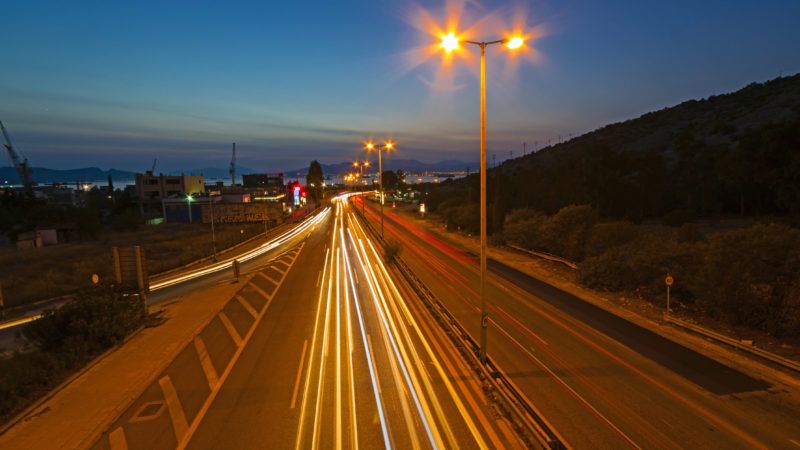In the Middle of a Severe Recession, California Prepares To Raise Its Gas Tax to 50 Cents a Gallon
The Golden State has the highest gas tax in the nation, and one of its worst-performing highway systems.

In the middle of a severe recession, the California state government is doing what it does best: raising taxes.
On July 1, the state's motor fuel excise tax will rise by 3.2 cents to 50.5 cents a gallon. That heavily regressive levy secures the Golden State's status as the nation's top taxer of gasoline. This coming increase—the third in four years, according to the Los Angeles Times—is the first time the tax will go up as the result of an automatic inflation-adjustment mechanism added in 2017.
That law requires that every July, beginning this year, the state's gas tax rate be adjusted to match any change in overall consumer prices, as measured by the California Consumer Price Index (CPI).
Inflation rates have plummeted around the globe during the pandemic, and California is no exception. The California CPI shows an overall decline in prices between February and April 2020, according to the latest figures published by the state's Department of Industrial Relations.
But that decline comes a little too late for the state's drivers. While California's economy is being ravaged by COVID-19 and the related shutdowns of businesses, the data the state relies on to calculate its gas taxes are coming from rosier times.
The 2017 law specifies that the tax's first inflation adjustment be based on the changes in the California CPI from November 2017 to November 2019. Because prices went up about 6 percent over that time, the gas tax is set to increase by the same amount.
That's prompted a group of Republican legislators to propose suspending the gas tax increase.
"Unemployment continues to rise and all the ways California was unaffordable prior to the pandemic still exist—suspending the gas tax increase is the least that could be done," Assemblymember Marie Waldron (R–Escondido) told the Los Angeles Times.
Democrats have dismissed the idea of delaying the tax increase, arguing that the state needs all the money it can get for roads at a time when tax revenues are falling across the board.
Twenty-two states and the District of Columbia index their gas taxes to inflation. The idea has some sense to it, says Baruch Feigenbaum, a transportation expert with the Reason Foundation (which publishes this website), but it should come with some flexibility in tough economic times.
"In the middle of a recession, folks have less money to spend, the economy is in bad shape," he says. "Any increase in taxes is just going to take money out of people's pockets."
Feigenbaum adds that California's gas taxes are already too high. In addition to being the highest in the country, the state's 50 cent excise tax is also double the average state gas excise tax.
Despite its high tax rates, California ranks 43rd in the Reason Foundation's 2019 measurement of state highway performance.
"The state is just so mismanaged when it comes to roadways," says Feigenbaum, citing excessive labor and environmental rules as some of the reasons California spends so much for such little return. Addressing those underlying issues, he says, would allow the state to get by with lower gas taxes in general, making any inflation-adjusted increase much less burdensome.
Rent Free is a weekly newsletter from Christian Britschgi on urbanism and the fight for less regulation, more housing, more property rights, and more freedom in America's cities.


Show Comments (67)